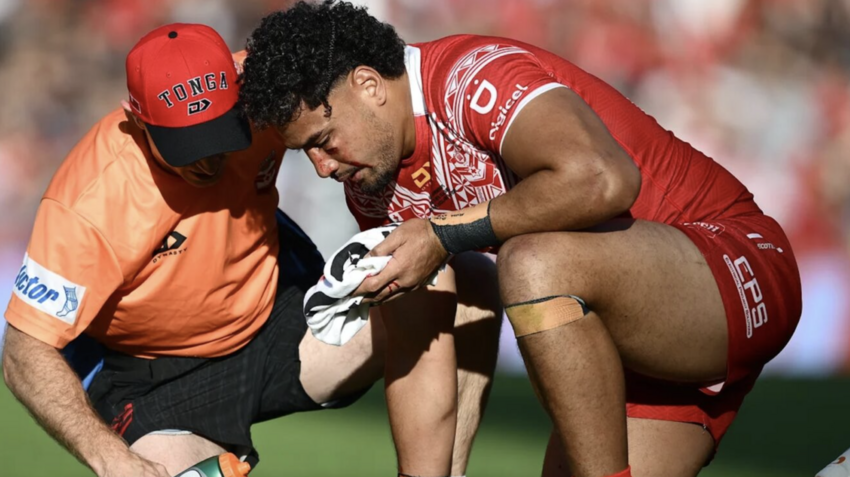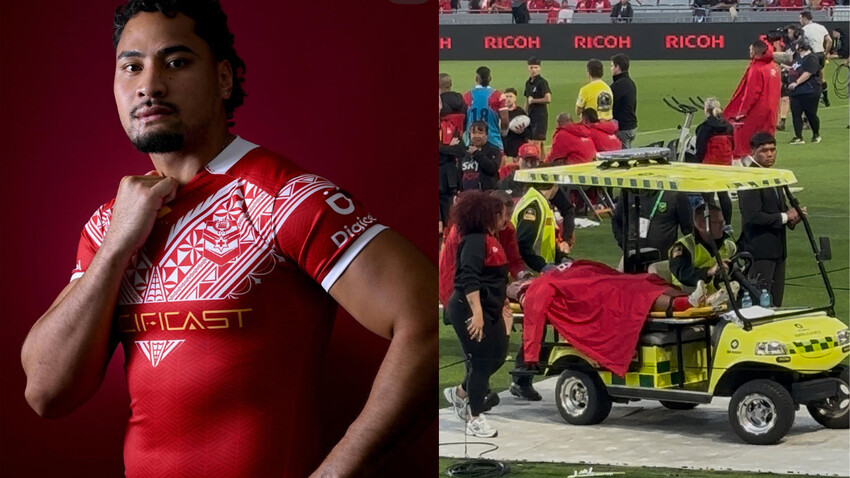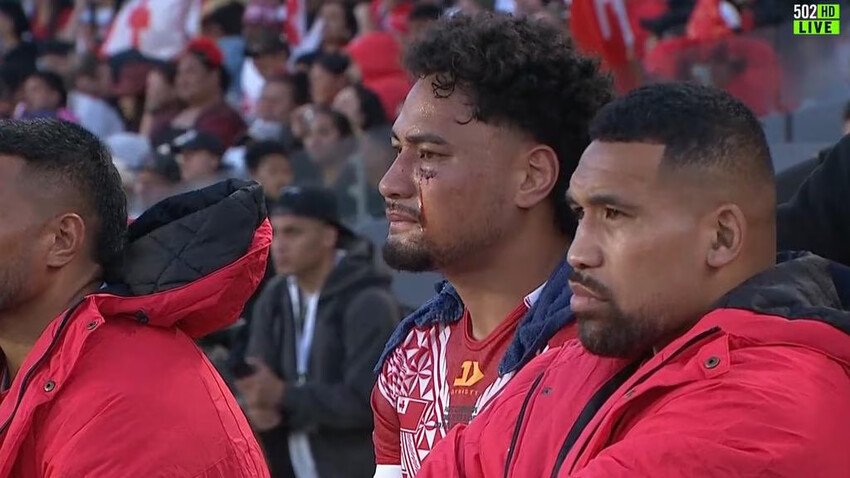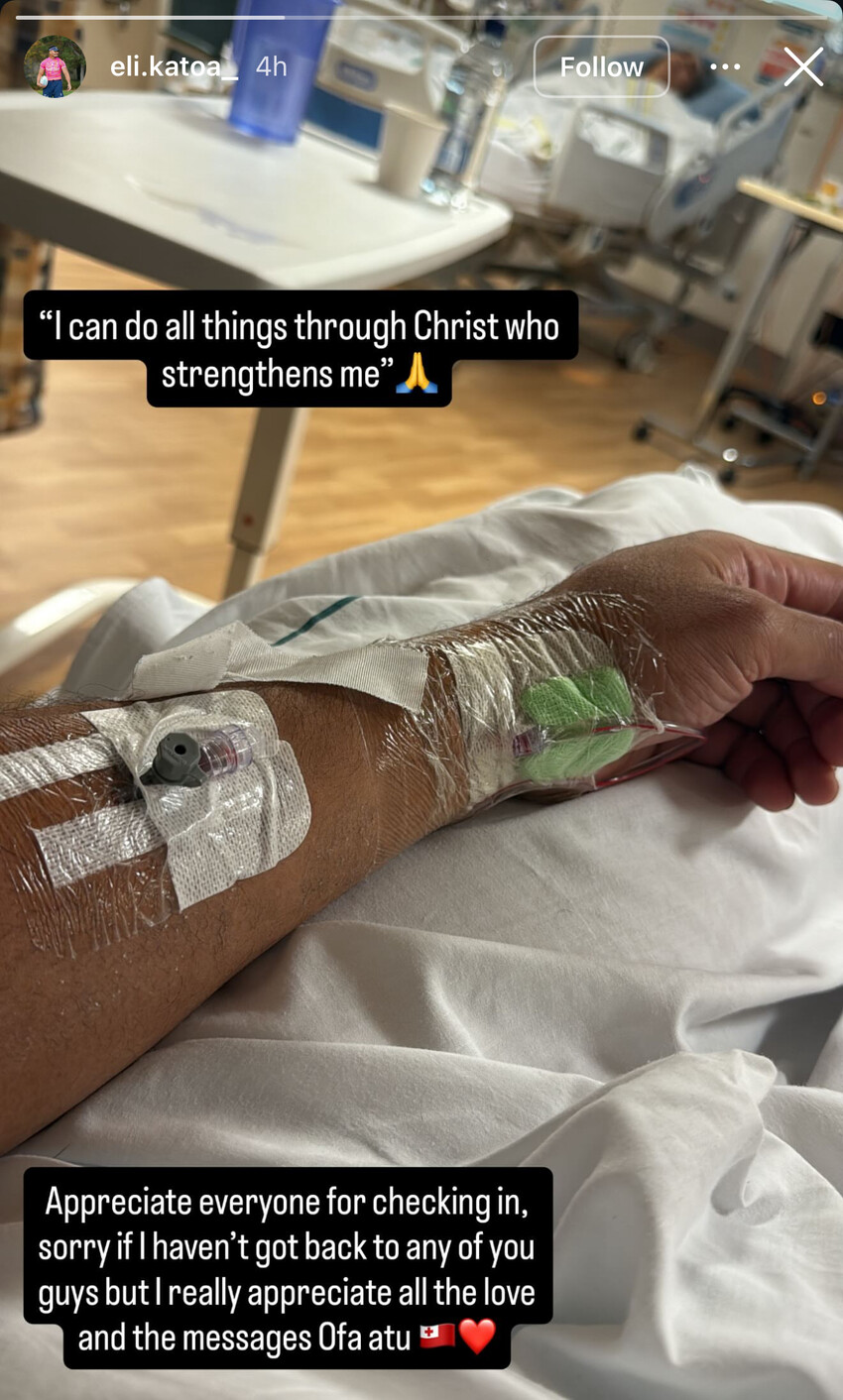Katoa out for 2026 NRL season as recovery continues after severe head impacts

Melbourne Storm have confirmed that backrower Eliesa Katoa has been ruled out of the entire 2026 NRL season as he continues to recover at home in Victoria, following brain surgery after suffering multiple head knocks during Tonga’s Pacific Championship match against the Kiwis on November 2nd.
The 25-year-old only recently returned to Melbourne after a prolonged stay in Auckland, where he was initially unable to travel due to bleeding on the brain and seizures suffered on the sideline.

“Eli’s health and wellbeing remain our number one priority,” Storm CEO Justin Rodski said.
“It is great to have him home safely and under the care of our club doctor and local specialists.
“He is improving each day and looking forward to continuing his rehabilitation from home.”
Rodski confirmed that Katoa will not return to training and that his recovery has no set timeline.
“In consultation with our doctor and neuro specialists, Eli will not return to training this pre-season and won’t be available for the 2026 season."
“He has a long road ahead in his recovery and his focus will be on returning to full health before considering any form of return to training.”
The RLPA has also pledged support, with chief executive Clint Newton saying:
“The RLPA’s primary focus is ensuring Eli is getting the medical care and support he needs. The first and foremost priority is that Eli makes a full recovery for himself and his family."
“We will work collaboratively with the Storm and NRL in the best interests of Eli’s health and wellbeing.”
HOW THE INCIDENT UNFOLDED ON NOVEMBER 2ND
Katoa’s collapse during the Pacific Championship match at Eden Park has triggered serious questions about player safety and concussion protocols, especially regarding Pacific players who often feel cultural pressure to “push through”.
The Storm forward suffered three separate head knocks in one afternoon.
**1. Warm-up collision — no HIA
-
In-game elbow — cleared to return
-
Second-half tackle — ruled out
The first and most debated incident happened before kick-off, when Katoa clashed heads with teammate Lehi Hopoate during the warm-up. Despite visible impact, he did not undergo a Head Injury Assessment (HIA) and was cleared to start the match.
In the 10th minute, he copped a second knock — an elbow from teammate Will Penisini — and was removed for an HIA but later cleared to return.
In the second half, a third head collision occurred when he attempted a tackle on a Kiwi player. This time, he did not return.
Katoa then sat on the sideline for around 10–15 minutes before his condition deteriorated. Teammates later described him becoming disoriented before suffering seizures, prompting urgent medical intervention.
He was fitted with an oxygen mask, loaded onto a medicab, and rushed to hospital where scans confirmed bleeding on the brain.

COACH KRISTIAN WOOLF DEFENDS THE PROCESS
At the post-match press conference, Tonga coach Kristian Woolf maintained that protocols were followed:
“The doctors did the usual HIA, we’ve got two very experienced doctors there. They’ve done their usual HIA and he’s passed all that well…. my job isn’t to question doctors. They were both comfortable with him coming back onto the field, so I don’t think there’s anything there in terms of worrying about the process.”
He added:
“Unfortunately I think he’s copped a second hit that was quite heavy and there’s been a poor result out of that - he had two HIA’s in the game. He passed his HIA from the first one, then the second one he doesn’t go back on anyway. By all reports he was fine when he came back off, but he deteriorated after that.”
The NRL’s independent doctor can only intervene in in-game incidents — meaning the warm-up knock fell solely under Tonga’s medical staff. The NRL has since launched a review into the handling of the situation.
A WAKE-UP CALL FOR THE GAME
The incident has reignited long-standing concerns around concussion management in rugby league. With World Rugby already adopting smart mouthguard technology, many believe league must follow suit quickly.
Head injuries aren’t just part of the game - they change lives and end careers.
Katoa himself has posted a short message thanking those who have reached out since the incident:

His toughness has never been questioned — but the systems responsible for protecting players are now under the spotlight more than ever.
